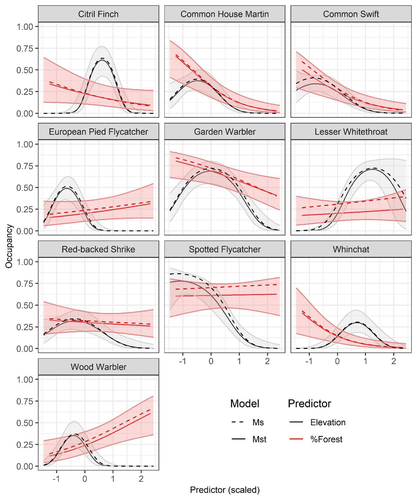
BOLKER Benjamin
- Biology and Mathematics & Statistics, McMaster University, Hamilton, Canada
- Community ecology, Host-parasite interactions, Spatial ecology, Metacommunities & Metapopulations, Statistical ecology, Theoretical ecology
- recommender
Recommendation: 1
Reviews: 0
Recommendation: 1

Mt or not Mt: Temporal variation in detection probability in spatial capture-recapture and occupancy models
Useful clarity on the value of considering temporal variability in detection probability
Recommended by Benjamin Bolker based on reviews by Dana Karelus and Ben AugustineAs so often quoted, "all models are wrong; more specifically, we always neglect potentially important factors in our models of ecological systems. We may neglect these factors because no-one has built a computational framework to include them; because including them would be computationally infeasible; or because we don't have enough data. When considering whether to include a particular process or form of heterogeneity, the gold standard is to fit models both with and without the component, and then see whether we needed the component in the first place -- that is, whether including that component leads to an important difference in our conclusions. However, this approach is both tedious and endless, because there are an infinite number of components that we could consider adding to any given model.
Therefore, thoughtful exercises that evaluate the importance of particular complications under a realistic range of simulations and a representative set of case studies are extremely valuable for the field. While they cannot provide ironclad guarantees, they give researchers a general sense of when they can (probably) safely ignore some factors in their analyses. This paper by Sollmann (2024) shows that for a very wide range of scenarios, temporal and spatiotemporal variability in the probability of detection have little effect on the conclusions of spatial capture-recapture and occupancy models. The author is thoughtful about when such variability may be important, e.g. when variation in detection and density is correlated and thus confounded, or when variation is driven by animals' behavioural responses to being captured.
Reference
Sollmann R (2024). Mt or not Mt: Temporal variation in detection probability in spatial capture-recapture and occupancy models. bioRxiv, 2023.08.08.552394, ver. 2 peer-reviewed and recommended by Peer Community in Ecology. https://doi.org/10.1101/2023.08.08.552394